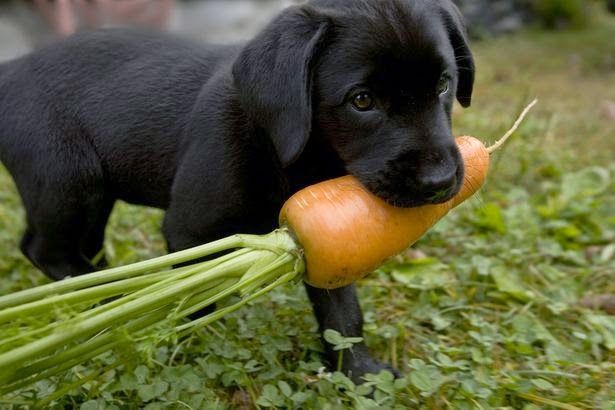When Do Lab Puppies Stop Eating Puppy Food

Puppy food should also be higher in calories than adult food to compensate for the energy puppies expend by growing and playing. About half of the calories they consume are spent on tissue growth and development. You should consult your veterinarian to determine a healthy food for your growing puppy.
When do lab puppies stop eating puppy food. Puppy should be eating 2 to 3 cups of food a day. • 12 weeks to 6 months: Puppy needs to be eating puppy food 2 to 3 times a day, with meals divided into equal amounts. • 6 to 15 months: Continue with puppy food, giving puppy 2 equal meals a day. Our Recommended Dog Foods For Lab Pups. Royal Canin Labrador Retriever Puppy (Editor’s Choice) Start to wean your Lab off the puppy food and onto the adult food bit by bit, no more than half a cup at a time. On the first day of the switch, you might feed a cup and a half of puppy food and a half-cup of adult food. On day seven, you might feed 1-and-a-half cups of adult food and half a cup of puppy food. Most new owners are delighted by puppy antics, but a puppy that eats poop prompts anything but smiles. It could be any animal's feces, too. From its stool to your cat's litter box deposits to a neighboring horse's or cow's manure, some puppies don't discriminate when it comes to poo they're willing to eat. Most Lab puppies will be taken home for the first time at around 7-8 weeks and at this age their teeth will be developed enough to eat dry food comfortably. If your pup arrives before their teeth have quite developed enough to enjoy dry food than any proprietary food watered down to a soup like substance should be sufficient for the puppy.
As the puppies grow, they can spend more time away from mom and be fed more often. At 6 weeks, puppies should be fed a high-quality food four times a day, Dunn explains. However, portions may need to be controlled for puppies of larger breeds, since overeating during their growth phase may predispose them to bone or joint problems. The average puppy has a voracious appetite, which is why a puppy that is not eating is cause for concern. Your puppy may stop eating for a number of reasons. He might have an upset stomach, he might be experiencing pain due to an injury, or he might be experiencing anxiety or stress for any number of reasons. After that, gradually increase the amount of kibble or solid food for your puppy to eat and digest. (see below for specific numbers) Amount and Frequency. Weaning puppies should be fed at least 3 to 4 times a day. An ideal recipe or formula for weaning puppies is a mash of 12.5 ounces of puppy milk substitute and 2 cups of dry puppy food. Availability of Puppy Food. The big brands are widely available in many parts of the world, and they have a valuable reputation to maintain. So, the chances are, your puppy will be eating a good quality product if you choose one of these. On the packet, your puppy food should give you the manufacturers quantity guidelines for that brand.
If your puppy is not eating much, not eating breakfast, or if you're not sure if your puppy is eating enough, read on for tips about what you can do. Reasons Why Puppies Stop Eating. There are many things that could cause a puppy to lose interest in their food, such as infections, pain, organ problems, or the way you’re feeding them. Puppies grow up fast and can start eating dry puppy food as early as 4 weeks old, but that dry food needs to be moistened first. You'll moisten the dry food with puppy formula or warm water while your pup's being weaned, a process that lasts around four to five weeks. Next day, lower the amount of puppy food to 50% while increasing the adult food to 50%. On the third day, offer the dog with around 25% puppy food but 75% adult food. For the last day, you can fill its bowl with 100% adult food without needing to mix with any puppy food. When the puppy doesn’t appear to be ready for the new adult food, just. For our recommendations of the best puppy food for labs, please read our article on: The Best Food for Labrador Puppies. Don’t Change Food When You First Get Your Puppy Home If you’re yet to get your puppy, it’s best you ask the breeder what they are feeding and stick to exactly the same food and brand.
If your dog is eating less of the puppy food, it may be the food has too many calories for him, even though he hasn't reached his maturation. If your pup's maturation is 12 to 16 months and he is slowing down his eating at 10 months, you can consider changing to adult food. Spaying or neutering lowers energy requirements slightly; after the procedure, switch from nutrient-rich puppy food to adult maintenance food. Small breeds can make the switch at 7 to 9 months. To really determine if your dog is getting the right amount of food, however, you need to monitor his body condition. How to Stop Feeding Puppy Food. When it’s time to stop feeding puppy food, you want to transition to adult dog food gradually. A gradual transition helps avoid stomach upset. The process can take 7 to 10 days. Your pup begins eating solid food around 3 to 4 weeks old. By 7 to 8 weeks old, he is eating only the puppy food. Once he is not nursing, he should have four meals a day that are measured and equally divided into four well-spaced intervals throughout the day.



















